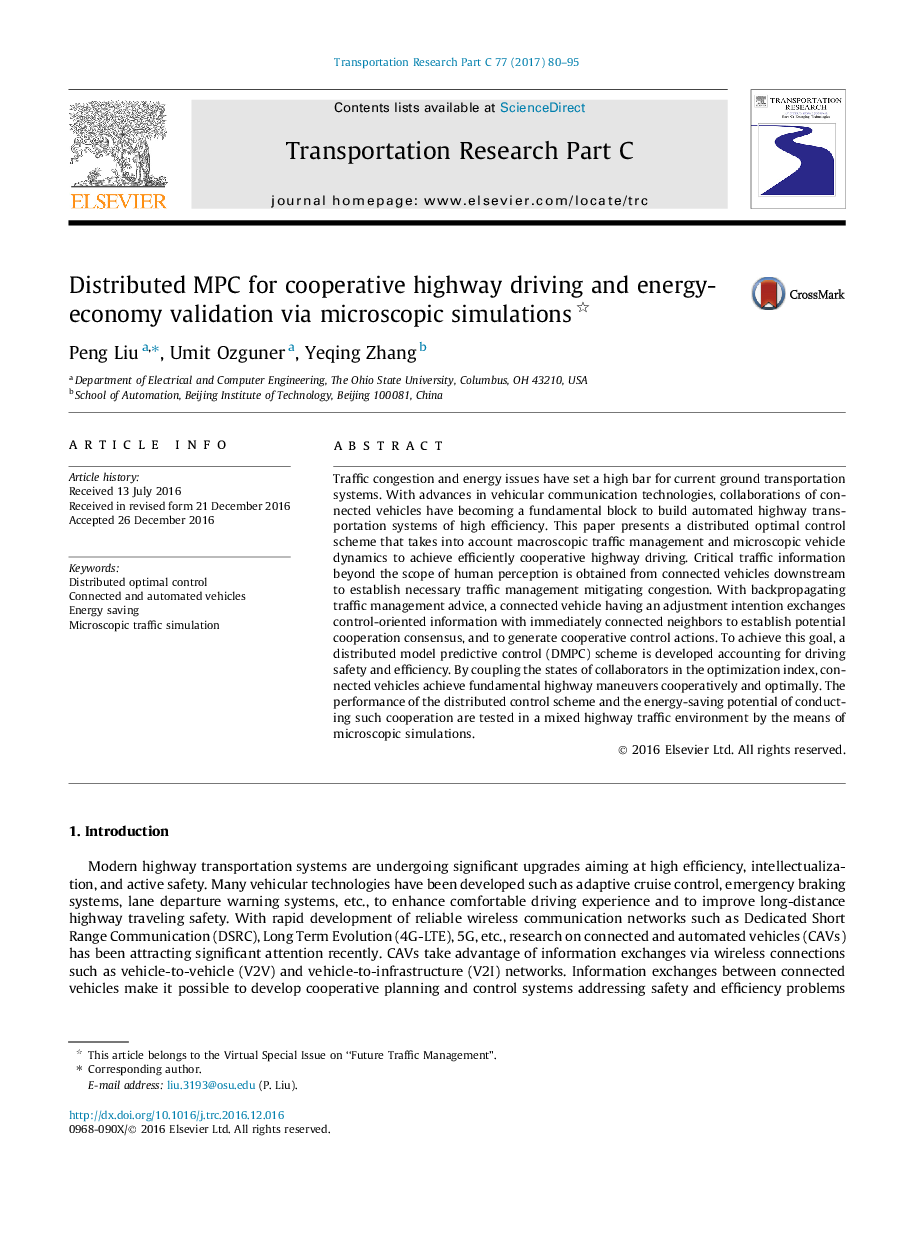| Article ID | Journal | Published Year | Pages | File Type |
|---|---|---|---|---|
| 4968621 | Transportation Research Part C: Emerging Technologies | 2017 | 16 Pages |
Abstract
Traffic congestion and energy issues have set a high bar for current ground transportation systems. With advances in vehicular communication technologies, collaborations of connected vehicles have becoming a fundamental block to build automated highway transportation systems of high efficiency. This paper presents a distributed optimal control scheme that takes into account macroscopic traffic management and microscopic vehicle dynamics to achieve efficiently cooperative highway driving. Critical traffic information beyond the scope of human perception is obtained from connected vehicles downstream to establish necessary traffic management mitigating congestion. With backpropagating traffic management advice, a connected vehicle having an adjustment intention exchanges control-oriented information with immediately connected neighbors to establish potential cooperation consensus, and to generate cooperative control actions. To achieve this goal, a distributed model predictive control (DMPC) scheme is developed accounting for driving safety and efficiency. By coupling the states of collaborators in the optimization index, connected vehicles achieve fundamental highway maneuvers cooperatively and optimally. The performance of the distributed control scheme and the energy-saving potential of conducting such cooperation are tested in a mixed highway traffic environment by the means of microscopic simulations.
Related Topics
Physical Sciences and Engineering
Computer Science
Computer Science Applications
Authors
Peng Liu, Umit Ozguner, Yeqing Zhang,
